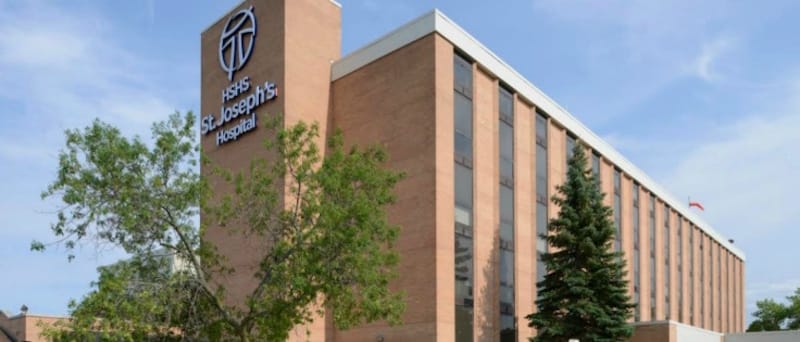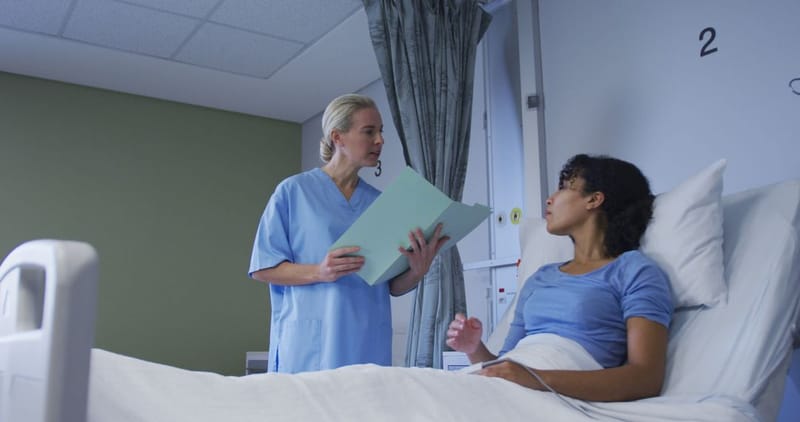Democratic representative warns of medical care crisis that is only going to get worse
It’s gotten bad enough that some folks in Eau Claire are simply driving to Minnesota where they can often see a practitioner in a fraction of the time it takes in their own county. Estimates are that 35,000 people in the Chippewa Valley have lost their primary care provider.
- Significant Health Care Closures Cause Crisis: The Chippewa Valley has experienced a major loss of medical infrastructure, with two large hospitals (St Joseph's and Sacred Heart) and 19 medical clinics closing.
- Impending Financial Cuts Threaten Further Collapse: Rep. Emerson warns that the situation, which she calls "the canary in the coal mine," is likely to worsen statewide due to nearly $1 trillion in anticipated Medicaid cuts in 2027 and the potential elimination of Affordable Care Act subsidies.
- Call for Solutions Over Scapegoating: Emerson advocates for shifting budget priorities to support health care and expresses frustration that some Republican colleagues are seeking "scapegoats" (like undocumented immigrants) instead of focusing on systemic solutions.
With the recent closing of two major hospitals and a host of medical clinics in the Chippewa Valley, Rep. Jodi Emerson wonders where many of her constituents are going to turn.
St Joseph’s in Chippewa Falls and Sacred Heart in Eau Claire shuttered their doors earlier this year and 19 medical clinics have followed suit in her district.
Emerson, a Democrat from largely rural District 91, warns that if it can happen in a medical hub like the Chippewa Valley, it not only can but almost certainly will happen throughout the state.
“We are the canary in the coal mine,” she says. “I think everybody remembers what it was like during covid, and especially during some of the surges where it was like people were doubling up in rooms. If you could put a gurney in a hallway you called that a room.
“Well, my husband had a minor emergency about four weeks ago and needed to be in the hospital and it was like we were back in Covid again.”
Much of rural Wisconsin is already considered medical deserts, with long waits and limited preventive, acute or mental health care which, even if you can access it, often requires long trips. This is especially dire for the elderly. It’s gotten bad enough, Emerson says, that some folks in Eau Claire are simply driving to Minnesota where they can often see a practitioner in a fraction of the time it takes in their own county. She estimates that 35,000 of her constituents have lost their primary care providers in recent years.

The worst is yet to come
All of this is happening before the nearly $1 trillion in Medicaid cuts from the Republicans’ budget reconciliation bill take effect in 2027. Rural hospitals already survive on the thinnest of margins and some analysts suggest that those hospitals in states that have not expanded their Medicaid programs such as Wisconsin (and have, thus, lost out on billions of matching federal dollars) actually operate on negative margins. Such hospitals also tend to rely much more heavily on Medicaid revenue – as high as 30 percent.
If that weren’t bad enough, the increase in the number of uninsured as a result of both Medicaid cuts and of people who may be be priced out of insurance entirely with the elimination of the Affordable Care Act’s enhanced subsidies (this is what the Democrats are demanding be protected in the government shutdown fight) will serve as a double whammy to rural medical providers. Why? Because the more rural clinics and hospitals are forced to offer uncompensated care to the uninsured the greater the strain on their bottom lines. That strain means fewer services – including, in some cases, life-saving chemotherapy, mental health crises and emergency care – or outright closures.
Emerson uses the examples of St. Joseph’s and Sacred Heart to illustrate the importance of Medicaid for these institutions.
“They were part of the HSHS Catholic system (the Hospitals Sisters Health System) and it was part of their mission that they're just going to take everybody,” she explains. “You know, they were really heavy in Medicare and Medicaid, and they just weren't getting the reimbursement that they needed. And they closed because of that and that has left a massive hole (in the area).”


Rep. Jodi Emerson, left, of the 91st Assembly District
Looking for scapegoats, not solutions
Emerson says she’s not sure of the solution other than to redirect our budget priorities toward providing the care Wisconsinites desperately need. She appreciates, she says, the negotiations between Gov. Evers and the Republican-dominated legislature which resulted in a $1 billion so-called hospital fund that can help with reimbursement rates. It’s why she voted for the budget in July, despite it containing so many things she disagreed with.
But though her Republican colleagues came around on the hospital fund, she admits to being frustrated over what she sees as their refusal to deal with the hospital crisis the state already faces.
“I think they're trying to, instead of looking at the problem, are looking to scapegoat it,” she says. “Instead of looking at how we can all come together to fix it. Because it is all of our problems.”
The scapegoat they are often using, she says, is undocumented immigrants. She finds fault with that on a couple of levels. One is that undocumented immigrants are not eligible for Medicaid, though no emergency room can turn them away from emergency care. The other is that it all calls attention to what she views as a fundamental flaw in our approach to health care: that we are not focused on prevention, which, she asserts, would save us in the long run.
She also says it makes sense, with so many farms and local businesses employing undocumented labor, that we make sure we are taking care of them, both from a moral standpoint but also from a financial standpoint.
“Everybody has hired labor on their farms nowadays, and most of the time that is coming from across our borders,” she says. “Even if they've got documentation, they might be afraid to go to a hospital because of the current climate and how people are being taken away because they speak Spanish or they look a certain way and so they're not going to go into the hospital unless they absolutely have to.
“And the whole point of health care is to get people as early in the process as we can. We don't want to wait until they're in a diabetic coma. We want to catch their blood sugars early. You know, we don't want to wait until they have a heart attack. The earlier that we deal with it, the cheaper and easier and more humane it is to deal with health issues.”
Six-month waits
Emerson tells another story of a constituent who contacted her after her primary care referred her to a nephrologist for a critical kidney issue. The soonest they could get her in was six months.
“Well, by then, you might be on the transplant list,” she says. “So our system is already stretched thin in the Chippewa Valley because of the closures. And with the clinics closed, when your prescription needs to be renewed for your cholesterol medication or your diabetes medication or your mental health medication, who are you going to for that?
“And I think my Republican colleagues are looking at it like, Oh, there's more people ending up in emergency rooms. We need to build more emergency rooms. Well, no, you need more clinics so people never get to the emergency room.”
Emerson adds that one of three veterans homeless shelters was recently forced to close in the Chippewa Valley. Beyond the human tragedy of that, she says, it creates a domino effect by rendering people homeless who then have only the emergency room for medical care, further driving up costs and further endangering the ability of hospitals to survive.
Emerson says when she’s talking to her Republican colleagues she argues that if we’re willing to give money to businesses to help get them started we should do the same for hospitals struggling to survive. Ultimately it makes financial sense, she tells them.
“Unfortunately, healthcare is a business in this country,” she points out. “And we're not helping the business of healthcare succeed. So when I put my ‘Republican translator’ on, and if we're looking at what's good for business, what's good for the tax base, maybe those are their talking points that they're going to hear. Good health care is one of the three things that a business looks at before they choose to relocate or expand.”
‘A lot of people who are scared’
Emerson worries further that fewer and fewer people are choosing to stay in the health care profession or to seek careers in it. She chalks that up to staff shortages, overwork, underpay and the increasing abuse they receive from patients who are rightfully impatient after six-hour waits in the emergency room.
“And then they're so cranky because they're not feeling good,” she says of those patients. “They've had to wait around for a whole day. And the verbal abuse, the not-Midwest nice, that is happening to all these health care providers because of the strain on our system. There’s a reason why so many health care providers left during covid and post-covid, just the stress of what happened to our system. And they just were like, I'm done.
“And I feel like we are pretty close to that in the Chippewa Valley too.”
Mostly, though, she worries about the impact of all of this on her most vulnerable constituents.
“There’s a lot of people who are scared,” she says. “This shouldn't be happening in a country like America, in an area like we have that is a medical hub. Personally, I've got the ability to travel, I've got the ability to make phone calls, things like that. But I worry about that 80-year old woman whose husband has died and kids live in other parts of the country. How's she getting health care? When her doctor leaves, when her clinic closes down, how is she supposed to get the help she needs?”
Democratic representative warns of medical care crisis that is only going to get worse © 2025 by Kelly Fenton is licensed under CC BY-NC-ND 4.0







